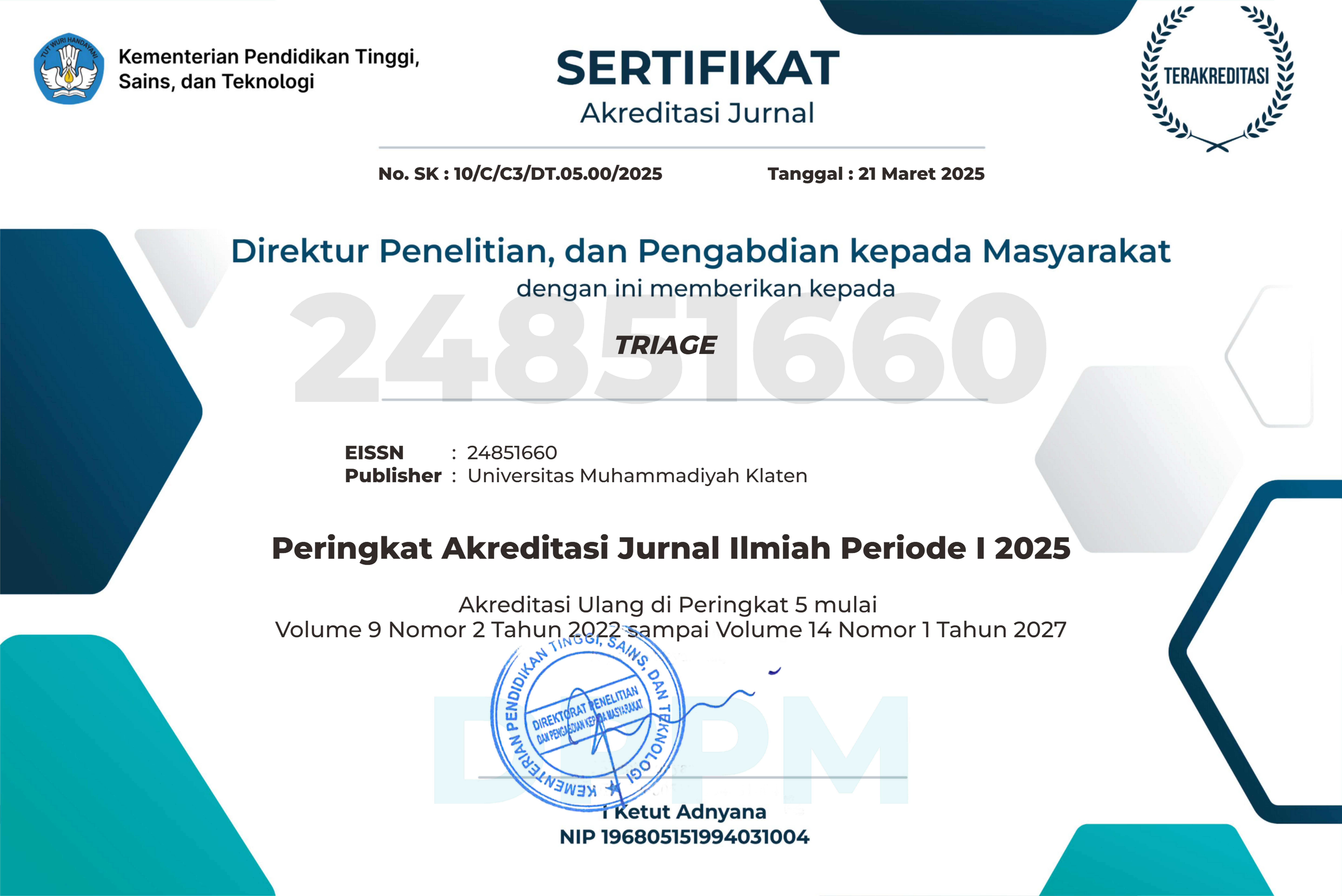Konsep Diri Berkorelasi dengan Kesehatan Mental Santri
Abstract
Santri have low self-concept, which is characterized by lack of confidence, low self-esteem, and negative self-assessment. Lack of adequate social support from family, friends, and teachers puts santri at risk of experiencing mental health problems. This study aims to identify the self-concept and mental health of santri. The research design used an analytical descriptive research method with a cross-sectional approach. The study population consisted of 350 male santri. The sample used in this study was 77 respondents consisting of male santri in grades 6 and 7. The sampling technique used cluster random sampling method. The research instrument used the Self-Concept instrument created by Prastiwi and the Mental Health Instrument using MHI-38 used by Diyah, both of which were re-validated and reliable. Data analysis used Kendall’s Tau correlation. The average age of santri was 13.7 years. Positive self-concept 83.1% of santri, good mental health 46.8% and very good mental health 44.2% of santri. Correlation analysis shows a positive relationship between santri’s self-concept and mental health with alpha 0.000. Santri’s self-concept is positive and mental health is good. There is a positive correlation between self-concept and santri’s mental health. Positive self-concept improves santri’s mental health.












